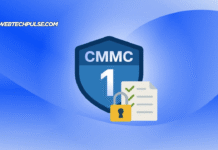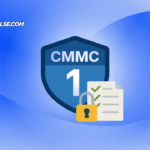To navigate the many employment opportunities. A candidate needs a way that they can showcase their achievements and experiences. Without a CV, it can be quite challenging to show a candidate’s experiences in an orderly fashion.
The competition in the market is high, and you need to dazzle a potential employer. The experts from Thesisgeek.com are sure the quality of your CV will increase your chances of acquiring a job or even to land an interview. To do this, the manner that you decide to write your CV makes all the difference.
How can you write a competitive CV? Here is a guide to help you with this. We will be looking at the chronological CV since it is the format most preferred by recruiting. It shows recruiters what job positions you held before and for how long. They will also be able to access your most recent activities.
Overview
The CV should include your employment history and working experiences in reverse order. Your recent experience comes first on the first page. Prioritizing relevant professional achievements and experiences offers a direct and simple approach to bring up data briefly and clearly.
What should you include in your Chronological CV?
Since this format focuses mainly on work experience, it is essential to include a career summary in detail. However, below are other important aspects that you should also cover.
Header
Your header should include your personal information at a glance. Personal information includes your name, your email, physical address, and phone number.
Personal Profile
Outline your critical experiences and skills. Having a compelling profile is crucial. It will grab the recruiters’ attention at first glance. Your profile should summarize your objective in not more than six lines. Remember to incorporate things like your experience, your qualifications, your skills, the industry knowledge you have. You should also include the familiarity you have with relevant software and tools.
Skills
This section showcases what kind of skills you bring on the table. Just below your profile, outline your skills in short bullet-point lists. Keep the points very brief, three words at most to make an impact with immediate effect. You should not use soft skills such as multitasking and organization. They are mostly a cliché and end up wasting space on the CV.
Work Experience
Employers will mainly have an interest in what you are doing at the moment. It’s good practice to include all your working experience on the first page of your CV. It’s brilliant to use a bullet point format to improve the readability and clarity of the CV.
Key Achievements
The best way to have the edge over your peers is from your top achievements. With this, you will distinguish yourself as a performer. But this will emphasize the impact of your previous work and show the employers what a difference you could bring to their company.
Education and Qualifications
Your education and qualifications should come towards the end. It demonstrates that you are an excellent fit for the position. It will also show your dedication to the development of your profession and your willingness to progress and learn in your career.
Summary
From the above, you now have a good idea of how you should write a CV. Additionally, don’t forget to have your CV appear professional and present it in a way that’s appealing to the reader. The presentation of the CV is the first contact that the reader will have. Make it appealing.
Writing a CV may seem to be a walk in the park, but it can be tedious. However, to market yourself to potential employers and land your desired job.












